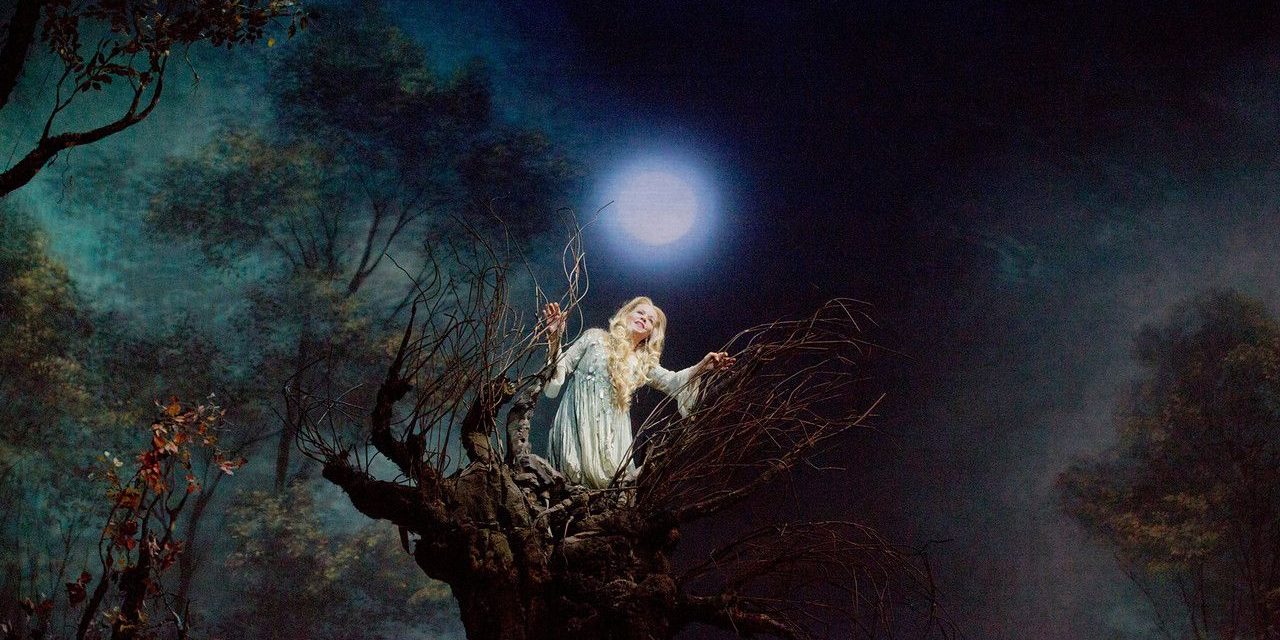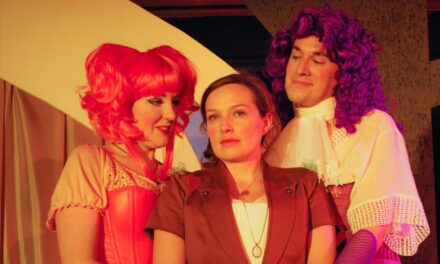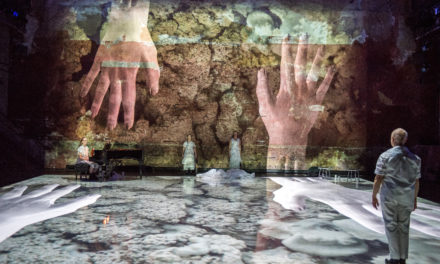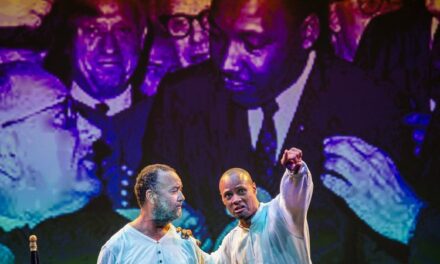The evening of April 25th marked the culmination of Opera America’s Onstage at the Opera Center season. Renée Fleming was the final guest of the Conversations series hosted by the President of Opera America, Marc Scorca.
The acclaimed soprano has been honored with the National Medal of Arts by President Obama, she is the winner of the 2013 Grammy Award for Best Classical Vocal Solo, has sung for significant events and new audiences – from the Nobel Peace Prize ceremony to the Super Bowl, and in 2008 became the first woman in the Metropolitan Opera’s history to solo headline an opening night gala. Among her signature roles are: Contessa (Le nozze di Figaro), Rusalka (Rusalka), Marschallin (Der Rosenkavalier), Desdemona (Otello), Ariadne (Ariadne aux Naxos), and Thaïs (Thaïs).
As a matter of fact, during the discussion, Renée Fleming stated that she has about 55 roles in her repertoire by now, and added that she had always been a fan of variety. She has sung masterworks from Mozart to Strauss, obscure pieces, new music, and a lot of concert and recital repertoire. However demanding that may be, it feeds her creativity and she prefers to take on roles that she can invent for the first time, while she especially enjoys working with living composers. She is a real advocate of new music and believes that it can really liberate a singer. Particularly in our era, she finds that there are more composers who can write well for voice and the audiences show more interest in these creations.
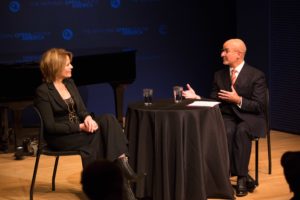
Photo by Noah Stern Weber
When asked about the new American operas, Renée Fleming expressed the opinion that they are becoming more accessible to European audiences, but emphasized on the fact that there is still a great need for more female composers and librettists as well as for strong, three-dimensional female characters. Reminding us of a similar statement by Meryl Streep, she said that for her age, the only available roles are witches or old ladies.
Bringing young people to the opera houses still poses a challenge. The great soprano mentioned that every time she is giving an interview or talks to a wider audience finds herself saying to come to the opera, because you can wear whatever and “there are supertitles.” She, also, finds large theatres, with the stage being distant, difficult for communicating with an audience who is now used in seeing the expressions of the singers on HD broadcasts.
From the way she talked about young singers, one could tell she cares for the new generation. Her own career was the result of a painstaking process so she really empathizes with the struggle of her young colleagues. The main advice she had to offer was that they should be patient and always think of how their decisions will affect them in the long run.
Being in the same room with Renée, one can understand why all Americans refer to her on a first name basis. She is friendly, humble, elegant, and the audience simply loves her. From her appearance, a chic black attire, to her smile and witty responses, she represents the master singer with whom people can relate.
This post was written by the author in their personal capacity.The opinions expressed in this article are the author’s own and do not reflect the view of The Theatre Times, their staff or collaborators.
This post was written by Antigoni Gaitana.
The views expressed here belong to the author and do not necessarily reflect our views and opinions.

